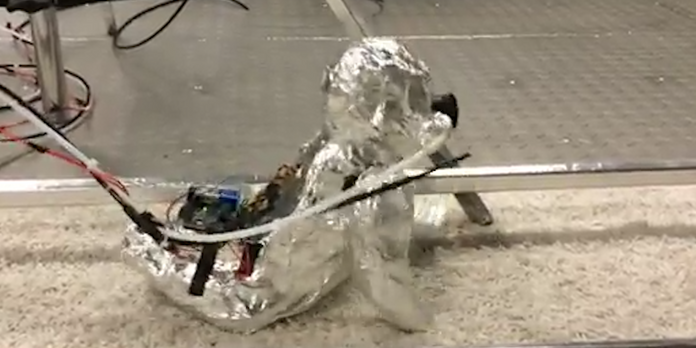
When a baby crawls, it steals hundreds of cells, bacteria, and pollen. He inhales. Researchers at Purdue University (USA) have determined that crawling children inhale a dose of biological material four times greater than adults. Which is not necessarily a bad thing. According to researcher Brandon Boor, studies show that exposure to microbes and allergen-bearing particles play an important role in the development and protection against asthma and allergic diseases.
This is the "hygiene hypothesis" formulated by epidemiologist David Strachan in 1989. An environment that is too clean can inhibit the development of the immune system while exposure to a wide variety of microbes can stimulate it. Because, indeed, the babies do not reject as effectively as the adults the dust. They breathe more often through the mouth and a significant amount of material is deposited directly in the tracheobronchial and pulmonary regions. To understand it, the team of researchers made a crawling robot - less cute - that it was crawling on carpets coming from houses. Then, they laser scanned the biological particles floating in the air in real time, second by second.
Thats good information, great post